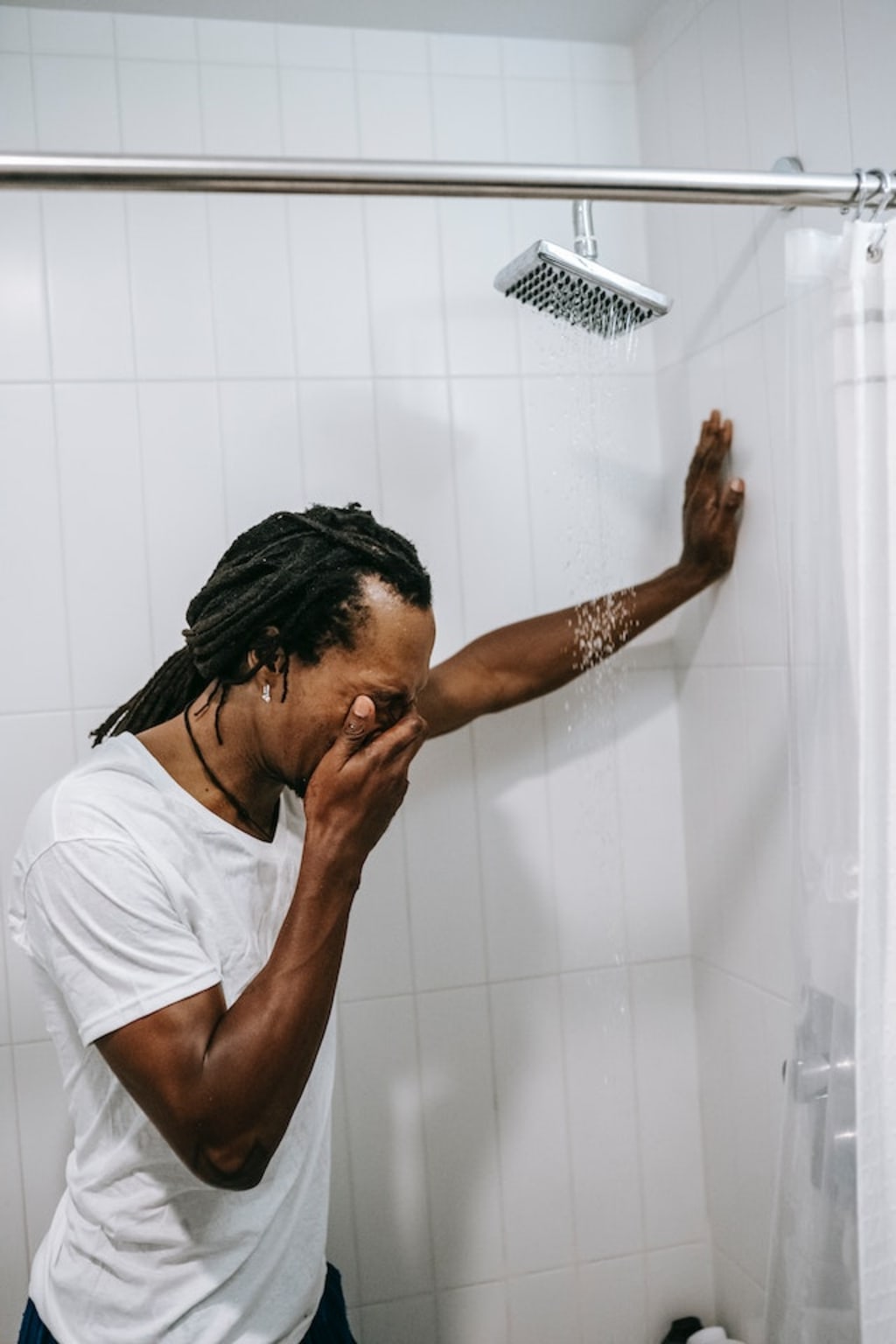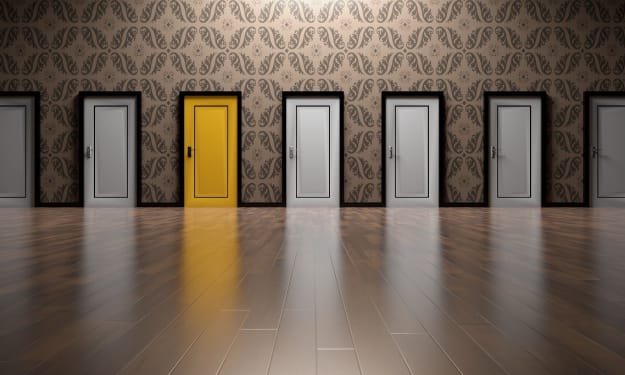Peeling Back the Layers of Alpha
7 reasons why men hide their pain and how to recognize it

Today, there is a pressing need to address the issue of men and their mental health. Despite significant advancements in awareness and acceptance, many men still struggle to express their emotions openly. This article aims to shed light on the reasons behind this phenomenon, exploring seven key factors that contribute to men hiding their pain. By understanding these factors, we can foster a more compassionate and supportive environment and help men feel comfortable sharing their struggles. So, let’s delve into the layers that often go unnoticed.
1. Societal Expectations and Stereotypes
From a young age, men are often taught to be stoic, resilient, and strong. I remember my dad always telling me that “when I’m gone, you are the man of the house.” I also recall feeling a sense of pride and dignity blended with a slight fear of not being able to live up to his expectations.
Society places immense pressure on men to conform to masculine ideals, discouraging emotional vulnerability. This societal conditioning creates a barrier for men to express their pain openly, fearing judgment or being perceived as weak. Since the beginning of time, in most cultures, men were raised to be protectors, providers, and often warriors. Even though this is part of the traditional masculine nature, there are other important areas of the male personality that are commonly overlooked.
2. Fear of Stigma and Judgment
Men frequently fear being stigmatized or judged for showing vulnerability. We worry about losing our reputation, being seen as less masculine, or facing repercussions in our personal and professional lives. This fear compels us to conceal our pain, even when we are in desperate need of support. My wife would often tell me stories about her day at work, referencing moments of emotional hurt. While I always listen and show support, I can recall a few occasions when I responded with my own issues just to have it blown over as if she never heard it. Even though I know it may have been done unintentionally, I am usually reluctant to repeat it.
3. Limited Emotional Vocabulary
Expressing emotions requires a language of its own. Unfortunately, men often have limited emotional vocabulary, making it difficult for us to articulate our feelings accurately. This linguistic barrier further contributes to the concealment of pain, as we struggle to find the right words to express the inner turmoil. I have found watching movies and drawing a reference from a particular scene or scenario helps me express certain thoughts or at least start “the conversation”.
4. Traditional Gender Roles
Traditional gender roles assign men the roles of providers and protectors. These roles often prioritize external strength over emotional well-being. Consequently, men may feel obliged to prioritize their responsibilities and suppress their pain, believing it is their duty to remain strong for others. As a man, having strength and confidence is in line with my nature, and it feels natural. The reality is, I can’t imagine anything else. There are times when I don’t want to assume the role and don't feel like I am avoiding my responsibilities, as society would label them. I think several men share this feeling, but people don’t realize that most men don’t have the convenience of withdrawal or pause, especially when you have a family to provide for or a business to manage.
5. Fear of Burdening Others
Men may hesitate to share their pain, fearing that they will burden their loved ones with their problems. They may worry about being a source of worry or causing distress to those around them. This fear of burdening others can isolate men and prevent them from seeking the support they need.
6. Cultural Conditioning
Personally, growing up in a Caribbean household, I have never witnessed my father or any of my uncles cry outside of a funeral, go to counseling, or disclose personal feelings to a religious leader. Growing up in the 1980s and 1990s, things were very different from what we see today, but studies show that this conditioning hasn’t changed much across many cultures.
Cultural norms and expectations play a significant role in how men perceive and express their pain. Certain cultures may discourage emotional expression or consider it a sign of weakness. This cultural conditioning can have a profound impact on men’s ability to disclose their emotions openly.
7. Previous Negative Experiences
Past experiences of rejection or invalidation can leave lasting scars, making men hesitant to share their pain in the future. Negative experiences, such as being dismissed or ridiculed when expressing vulnerability, create a deep-seated fear of repeating those painful encounters.
How to Recognize Hidden Pain in Men
Recognizing and addressing hidden pain in men is crucial for their well-being. Here are some signs that can help identify when a man is concealing his suffering:
· Physical Indicators
· Changes in appetite or sleep patterns
· Frequent headaches, body aches, or fatigue
· Increased substance abuse (alcohol, drugs)
· Loss of interest in previously enjoyed activities
· Behavioral and Emotional Signs
· Social withdrawal and isolation
· Heightened irritability or anger
· Persistent sadness or mood swings
difficulty concentrating or making decisions.
Strategies to Support Men in Expressing Their Pain
Creating a safe and supportive environment can encourage men to open up about their struggles. Here are some strategies that can help men feel comfortable sharing their pain:
1. Foster Open Communication
Promote open dialogue and actively listen without judgment. Create spaces where men can express themselves freely, knowing their emotions will be validated and respected.
2. Challenge Stereotypes
Encourage conversations that challenge rigid gender roles and expectations. Emphasize that emotional expression is a sign of strength, rather than weakness.
3. Provide Resources and Support
Make mental health resources readily available and raise awareness about support networks. Offer information about therapy, counseling services, helplines, and community groups that men can turn to when needed.
4. Lead by Example
Normalize emotional expression by showcasing vulnerability and empathy in your own interactions. When men see others embracing their emotions, it can inspire them to do the same.
5. Educate and Advocate
Spread awareness about the importance of men’s mental health. Educate others about the societal pressures men face and the benefits of fostering emotional well-being.
Conclusion
By unraveling the layers that shroud men’s pain, we can foster an environment where emotional expression is embraced, and support is readily available. It is essential to challenge societal norms, provide resources, and encourage open communication to dismantle the barriers that prevent men from sharing their struggles. By acknowledging and addressing men’s hidden pain, we can contribute to their overall well-being and create a more compassionate society for all.
By Deen
Thanks for your time
About the Creator
House of Holistic
Understanding that all parts are interconnected and can be explained only by reference to the whole. As a student of life I'm sharing what I learn. We all have more in common than we think, I aim to lift the barrier that keeps us strangers






Comments
There are no comments for this story
Be the first to respond and start the conversation.